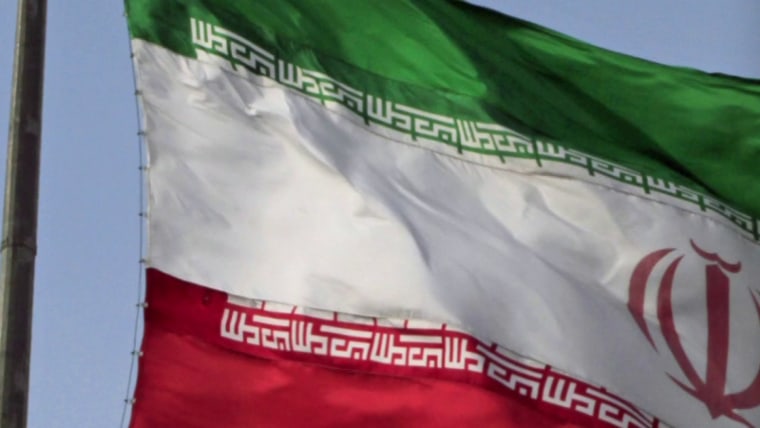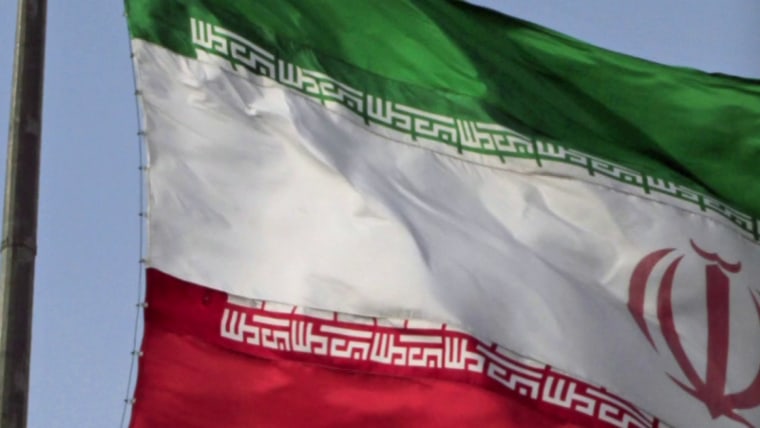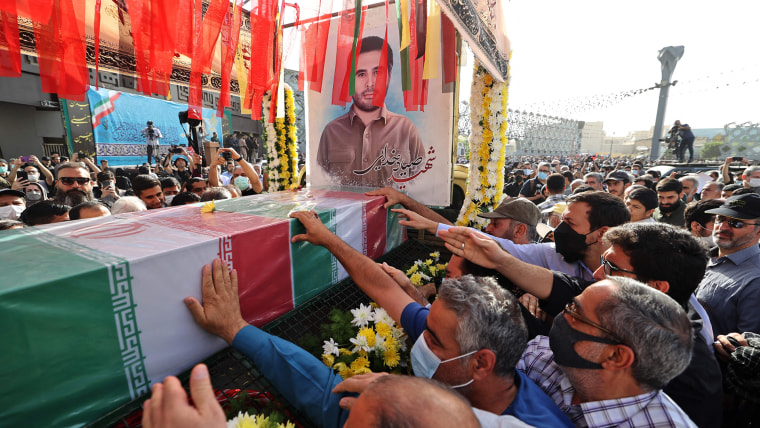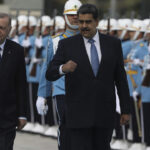Iran says it has turned off two U.N. cameras monitoring its nuclear work, just as the United States and European governments were poised to rebuke Tehran over the regime’s failure to cooperate with an international probe of its nuclear program.
The move cast fresh doubts on efforts to restore a 2015 nuclear deal designed to prevent Iran from developing nuclear weapons and underscored rising tensions between Tehran and Washington.
Iran announced the step through state television and other media outlets, saying two cameras from the International Atomic Energy Agency had been deactivated, but did not specify which nuclear site was affected or offer further details.
Behrouz Kamalvandi, spokesperson for the Atomic Energy Agency of Iran, said 80 percent of IAEA’s surveillance cameras were still operating, state media reported.
Kamalvandi also said Iran’s cooperation with the IAEA was purely voluntary and that the cameras were not part of Tehran’s obligations under the Nuclear Nonproliferation Treaty (NPT) safeguards agreement.
The news came as the 35-nation IAEA board was expected to vote Thursday on a proposal to rebuke Iran for its lack of cooperation with the IAEA’s investigation into its nuclear activity.
The IAEA’s director general, Rafael Mariano Grossi, earlier this week said Iran had failed to provide credible explanations about the origins of undeclared nuclear material found at three locations.
Grossi also said this week that Iran was close to having enough enriched uranium to produce an atomic bomb.
In a statement delivered Wednesday at the IAEA board of governors, the U.S. ambassador to the agency, Laura Holgate, accused Iran of failing to cooperate with the IAEA and called its decision to turn off two monitoring cameras “regrettable.”
“If accurate, reports that Iran plans to reduce transparency in response to this resolution are extremely regrettable and counterproductive to the diplomatic outcome we seek,” Holgate said.
The U.S. ambassador also said the U.S. was not seeking to raise tensions by backing a censure resolution against Iran, but that Washington had an obligation to hold Tehran accountable given its stance toward the IAEA.
“We are not taking this action to escalate a confrontation for political purposes. We seek no such escalation. The Director General’s report to this Board was crystal clear about the status of the outstanding issues. Based on that report, it is also clear that Iran’s insufficient cooperation — and the longstanding deficit in verification assurance this has created — requires us all to act,” she said.
A State Department spokesperson said that Iran’s actions would only further complicate efforts to resurrect the 2015 nuclear accord. Last month, the chief US negotiator for the negotiations, Robert Malley, said the prospects of reviving the nuclear deal were “tenuous” at best.
“Iran’s response should be to fully cooperate with the Agency, not further expansion of its nuclear activities and reduction of transparency,” the spokesperson said.
Iran’s U.N. mission did not immediately respond to a request for comment.
Iran says its nuclear program is for purely peaceful purposes.
Britain, France and Germany said in a statement Tuesday to the IAEA board they were deeply concerned about Iran’s nuclear activity that has blown past the limits set out in the 2015 deal. The governments also cited reports from the IAEA that Iran has withheld camera footage from 2021.
“The I.A.E.A. has been without crucial access to data on centrifuge and component manufacturing for a year and half now,” said the statement by Germany, France and Britain. “This means that neither the agency, nor the international community, know how many centrifuges Iran has in its inventory, how many were built, and where they may be located.”
The 2015 nuclear accord, known as the Joint Comprehensive Plan of Action or JCPOA, imposed restrictions on Iran’s nuclear program in return for an easing of U.S. and international economic sanctions on Tehran.
In 2018, then President Donald Trump withdrew the U.S. from the deal, reimposed sanctions and introduced new sanctions. Since President Joe Biden entered office, the United States and other world powers have tried to revive the accord in negotiations in Vienna. But the talks have become bogged down in recent months.
The 2015 deal includes an IAEA inspections regime to allow U.N. experts to monitor if Iran was undertaking work that could be used for a possible nuclear weapon.






